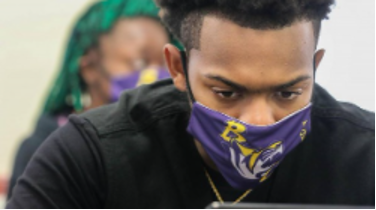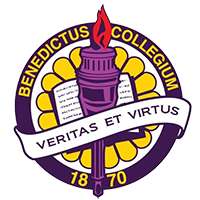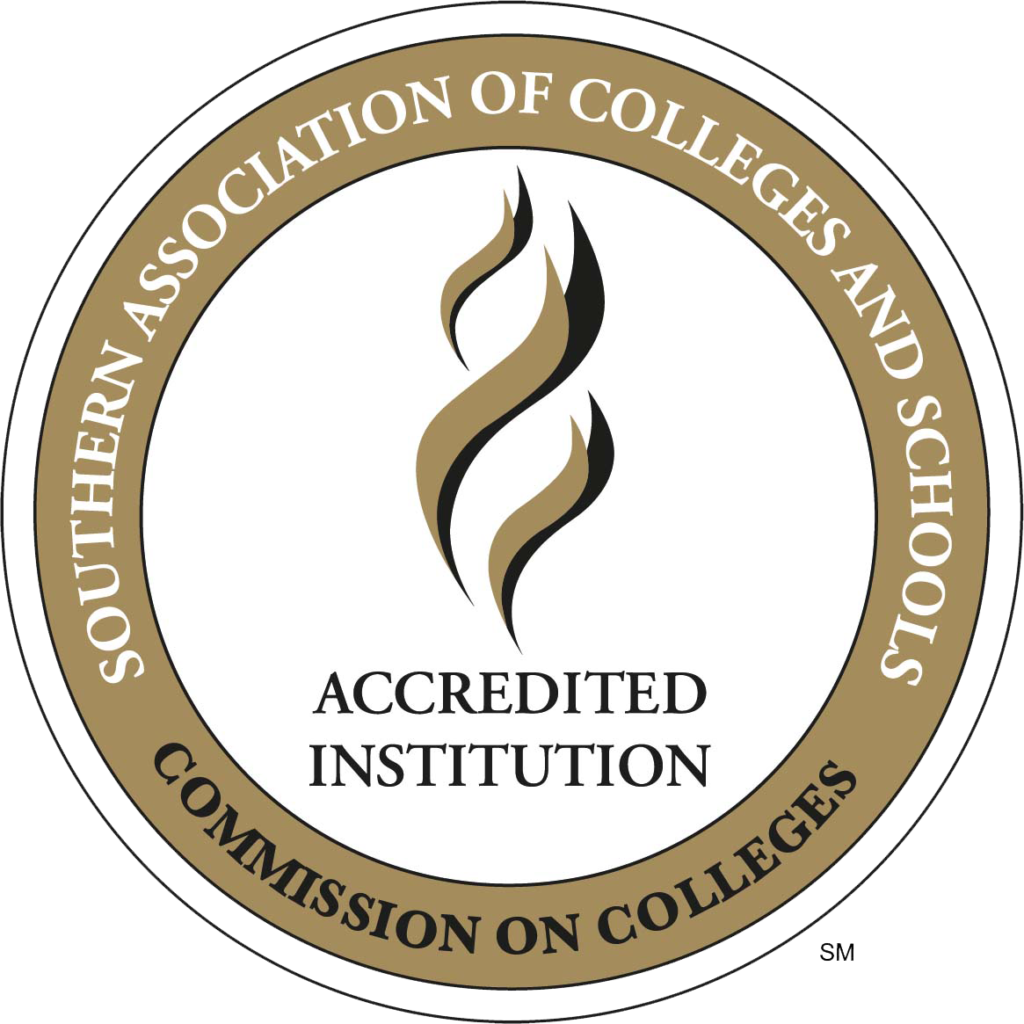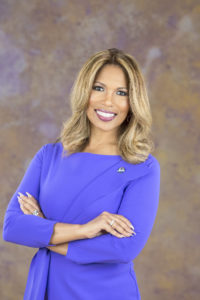 With the onset of COVID-19, leaders of South Carolina HBCUs say their institutions are dealing with two issues disproportionately impacting their communities: social unrest and COVID-19.
With the onset of COVID-19, leaders of South Carolina HBCUs say their institutions are dealing with two issues disproportionately impacting their communities: social unrest and COVID-19.
Not only do their students reflect a community more likely to die from COVID-19 — African Americans make up 27% of South Carolina’s population but account for 35% of coronavirus deaths, according to the state’s health agency — but they also have been bearing witness to social unrest sweeping the nation in response to African Americans dying in violent encounters with law enforcement and others.
The deaths of Ahmaud Arbery, George Floyd and Breonna Taylor and others have spurred protests across the country, re-exposing a wound within some in the Black community. Those deaths also have caused some anguish among HBCU faculty who would otherwise be able to better embrace their students on campus if it were not for a pandemic keeping some of them physically apart.
“Under normal circumstances, we would have called assemblies … we would have talked through it, walked through it, unpacked it and helped our kids really sort through their feelings and advocate in an effective way,” said President Roslyn Clark Artis of Columbia’s Benedict College.
“My inability to get my arms around them during the crisis drove me nuts. It was really difficult.”
Not only has the pandemic made addressing social unrest difficult — we’re dealing with both issues at the same time, Artis added.
“This is a critical moment in our country. We are dealing with ‘twin pandemics’ — racial unrest (driven by incidents of violence against Black Americans) and COVID-19,” Artis told The State. “Unfortunately, it’s not the first time we’ve seen an African American killed at the hands of police or vigilantes.”
“The fact that we were standing still and watched it live, all day, every day because of COVID-19, I think is what has created some of the reaction we’re seeing right now.”
The collision of the novel coronavirus and the push for racial justice has made the importance of reopening HBCU campuses safely to students even more urgent, leaders of several HBCUs in South Carolina say.
The campuses provide some students vital services such as access to meals, health care and shelter as well as a safe space for students to discuss the violence against Black people, trauma hitting close to home.
With the onset of the pandemic, colleges are tapping into innovative ways to meet the academic needs of their students, and for some of South Carolina’s historically black colleges and universities, leaders say beyond academics, it is vitally important to ensure the physical and emotional well-being of their students.
Aggressive COVID-19 testing, curfews and hybrid learning options are helping HBCUs keep infection numbers low while also allowing students to return to campus gradually, their leaders say.
For the two Black institutions in Orangeburg, Claflin and South Carolina State University, the academic year began with remote instruction and a gradual return of students to campus.
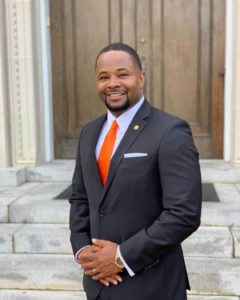 Claflin students were required to present negative COVID-19 test results and quarantine for a week with the option of attending classes in-person or remotely. Only students that live on campus, which is less than a third of the student population, are allowed to attend face-to-face class instruction while off-campus students will continue remote learning, said President Dwaun Warmack of Claflin University.
Claflin students were required to present negative COVID-19 test results and quarantine for a week with the option of attending classes in-person or remotely. Only students that live on campus, which is less than a third of the student population, are allowed to attend face-to-face class instruction while off-campus students will continue remote learning, said President Dwaun Warmack of Claflin University.
“We’re bringing 500 students back is an easier number to control,” Warmack told The State. “We’re creating our … own bubble in the spirit of the NBA, so we’ll have our own … controlled space.”
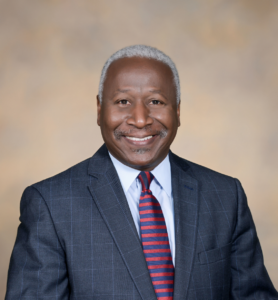 Approximately 20 international students remained on South Carolina State University’s campus through the summer as they were unable to return to their home due to travel ban restrictions imposed because of COVID-19. An additional 200 students, who also were required to present negative COVID-19 tests, are living on campus, with priority given to students who require access to laboratory equipment and student-athletes participating in winter sports, S.C. State President James Clark said.
Approximately 20 international students remained on South Carolina State University’s campus through the summer as they were unable to return to their home due to travel ban restrictions imposed because of COVID-19. An additional 200 students, who also were required to present negative COVID-19 tests, are living on campus, with priority given to students who require access to laboratory equipment and student-athletes participating in winter sports, S.C. State President James Clark said.
S.C. State students on-campus continue to complete coursework remotely with the exception of students participating in labs. Since the start of the semester, officials told The State that only two students have tested positive for coronavirus which was discovered upon their return to campus.
“The thing that we believe that we must communicate is a notion of shared responsibility and social contract,” Clark told The State. “We had some students that had to remain on campus since spring break and that pool of individuals, that pool of students retained zero positives since spring break. They followed our protocols to the letter, and I’m quite proud of the product and it shows what is possible.”
3,000 rapid test kits provided by the Department of Health and Human Services arrived last week to S.C. State’s campus, part of an initiative by the White House to send coronavirus kits to HBCUs across the country.
TECH CHALLENGES HIGHLIGHT DISPARITIES, FACTOR INTO REOPENING
A lack of widespread access to broadband for completing school work also has created a barrier to learning for students, HBCU leaders say.
An emergency fund was established at Claflin, allowing administrators to provide over 300 laptops and hotspots for students who completed a need-based application. The extent some students have to go through to access Wi-Fi is alarming, said Warmack of Claflin, recalling the story of one student who would drive 60 miles to the nearest McDonald’s to use the restaurant’s internet while using their iPhone to type their research paper.
“As a novice being relatively new to South Carolina, I didn’t know of how many areas in the state of South Carolina didn’t have bandwidth, that just didn’t have internet access,” the Detroit native said.
Recognizing these challenges — 12% of Benedict students lacked broadband access — as well as concerns about home and food insecurity, president Roslyn Clark Artis told The State that providing a safe space for students was the right thing to do, and students who had access to broadband and had safe housing were encouraged to stay home and continue learning remotely.
“A confluence of factors, the physical safety of our students, the health and safety of our students, the emotional stability of our students and the access to technology and learning and educational opportunities for our students, in my opinion, forced me to open.”
TRACY GLANTZ TGLANTZ@THESTATE.COM
Nearly 700 students have been on campus, participating in hybrid learning, since their August 10th start date, and universal testing of students as well as restricting campus access and implementing a midnight curfew are just a few measures in place to mitigate the spread of COVID-19. Nearly seven weeks on campus the school has seen 17 positive cases, according to Artis.
“We do randomized testing of about 10% of our population a week to include students who have to work off the campus,” Artis said. “Students who go home for the weekend, students who violate curfew, they automatically get pulled for testing.”
HBCUS ARE ‘SHELTER IN TIME OF STORM’
HBCUs are cornerstones in the African American community, and their role over the decades has been magnified in recent times due to the challenges of health and issues of social justice and police brutality, said Bobby Donaldson, University of South Carolina associate professor and civil rights historian.
“Historically black colleges have always been what people have called a shelter in a time of storm for African Americans and is playing that role now,” Donaldson said.
Students have found their own way of making their voices heard outside the walls of their HBCUs while recognizing the urgency of catering to the emotional needs of their colleagues.
“It’s a lot going on in the world. Social justice. This pandemic,” said Javonni Ayers, S.C. State student body president. “But just because we’re not on campus, and just because we’re not in Orangeburg does not mean we’re not making a difference.”
Part of making a difference includes student leaders holding weekly mental health discussions, providing a forum for students to share their experiences in a safe space, the college junior and Columbia native said.
And the constant reassurance from faculty that students were not in this “fight” alone gave undergraduates like Benedict Student Body President Mya Schofield the motivation to make a difference through civic engagement.
“We’re watching. We’re listening,” the Atlanta native said. “We’re citizens, so we’re making sure we go out and vote and hold those people that are in office accountable, to make sure that they speak for us.”
Discussions with students regarding the emotional impact of their personal encounters with police as well as concerns about race relations have found a place inside classrooms of some HBCUs.
The racial unrest, police brutality and protests added another layer to the teaching experience. Not only are educators dealing with a pandemic that affects how they teach and how students learn, they are dealing with events that have affected the psyche of some of our students, S.C. State instructor Dante Mozie said.
“You have a situation now where you have to be vigilant with regards to the mental health aspect of our students,” said Mozie. “Being in this job is like being a public servant. You’re serving the community and in particular, working at a historically black college, you’re in service to the Black community, to the African American community.”
Benedict Department Chair of Social work, John W. Miller, co-created a course titled, “From Emmett Till to Black Lives Matter: Social Justice Among African Americans,” in direct response to this summer’s social unrest, an effort to equip students with the knowledge to fuel their emotions.
“When you have to question what is safety, so much in a post-traumatic stress and other things that affect our community, we live with that internally,” the scholar in identity development said. “It’s depressing that it’s so necessary because we know that we have to get our young people prepared, not for the world that goes outside of the confines of 1600 Harden Street, we can somewhat protect them here, but we can’t necessarily protect them in the real world.”
President Clark, of S.C. State, said progress involves properly educating young people about the history of social action in the state, particularly in areas such as his campus, the site of the 1968 Orangeburg massacre, when state troopers opened fire on a student-led protest over a segregated bowling alley, killing three and injuring many others.
“S.C. State has been a place where not only there’s been social injustice not noticed and acknowledged, but we’ve worked to seek solutions,” Clark said.
Our country very much needs some of what we have always had on these campuses, and that is an understanding and appreciation for all people with a particular emphasis on people of color and their contributions to building this country, said Artis, who in 2017 became the first female president in Benedict’s 150-year history.
‘BLACK LIVES HAVE ALWAYS MATTERED HERE’
A passion for student success and a deep sense of pride for HBCUs, coupled with their lived experiences, inspire their practices, the Black leaders said.
“I am an unapologetically African American male that grew up in the urban core of Detroit, Michigan and in the projects of Detroit to a single mom,” said Warmack, Claflin University’s president. “I was the epitome of a first-generation college student from a low socioeconomic background, and so Trayvon Martin, George Floyd, every one of them could have been me.”
Healing a community through social justice work is part of what Warmack calls his life’s work and “calling.”
“We fundamentally believe we can be a part of the problem or part of the solution,“ said Warmack who’s in his second-year at Claflin. ”As an HBCU we feel we have civic and moral responsibility to serve as the intellectual think tank to help the community heal.”
The “pain” of having “the talk,” an honest conversation some parents have with their Black children about navigating encounters with law enforcement, coupled with brutality being captured on video is a constant reminder of the realities of some Black Americans, said Benedict professor John W. Miller.
“These incidents are now on video and with social media and 24-hour news cycles. You see it a zillion times,” the father of two said. “Even though it happened thousands of miles away, it literally feels as though it’s right in your back door because they are incidents in our back doors that have been there for decades that just haven’t been put to light.”
Despite the circumstances, a fervent resolve shared among faculty and staff of HBCUs is the need to communicate to their students how valuable their abilities and lives are to society, the schools’ leaders say.
“Despite the fact that HBCUs were founded because of segregation, because our students could not go elsewhere, we have never excluded anyone else,” Benedict’s Artis said. “Black lives have always mattered here … The reason you have to say those things is because they’re not implicit in our country’s history, our fabric, and (at) HBCUs they always have been.”
The State, Christina L. Myers, September 29, 2020.

